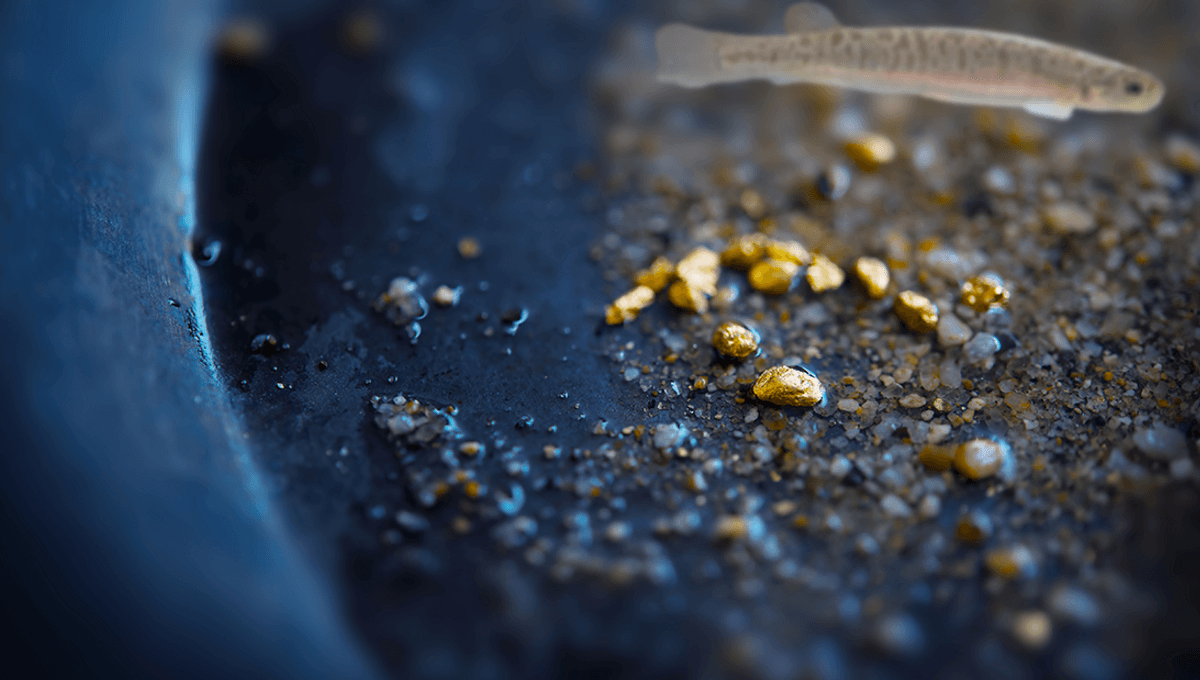
Finding gold is notoriously difficult with a surprisingly small amount discovered in Earth’s history. While some may discover exceptionally large nuggets, most go home empty-handed. In New Zealand however, one group of researchers had a brainwave: by combining the unusual mixture of geology and the genetics of fish populations they have quite literally struck gold.
New Zealand sits on two tectonic plates, meaning the geology of the country has been constantly changed as mountain ranges are created and rivers are altered in their course. Over the last 20 million years the drainage in eastern Southland has changed substantially causing changes to the distribution of alluvial gold. Also caught up in this geological upheaval are a small unassuming group of native freshwater fish in the genus Galaxias.
These fish were found living on both sides of a naturally created divide known as a “Hadrian’s Wall”, which separates the New Zealand areas of Otago and Southland. This mountain barrier is mostly responsible for the drainage changes in both of these areas and was initiated in the late Miocene or early Pliocene. The team quickly realized that the fish had been one population that had been split when the mountain range was created. This led the team to wonder if they could use the fish genetics to work out exactly when that split had happened.
Three genetically different groups of fish known as flatheads, roundheads, and pencils can be used to estimate the timings of the geological events using a “genetic clock” that helps researchers find out when populations become isolated and thus genetically distinct.
“There are places where the fish record is strong and the geology isn’t, and places where the geological record is strong and the fish are less informative. But by putting the two together, we can put the pieces of the jigsaw puzzle together,” biologist Jon Waters told Eos.
As the geology of the land changed, populations of these fish became isolated leading to changes in their morphology and genetics as well as physical isolation from other populations. The mountains between Southland and Otago caused this isolation leading to a Southland flathead species and then subsequent roundhead lineages. A particularly distinctive looking and therefore unusual roundhead species in the Pomahaka area leads the team to suspect that the Pomahaka River only became a tributary to the Clutha in the last million years.
The team has gone on to use the fish as a means of predicting where the old rivers flowed. The method is so successful that it has even been used across the world in South America. Central Otago is famous for its gold deposits and as the rivers flowed southwards the gold was carried with it. The team made predictions based on the fish populations that there is an ancient river under what is now farmland that could be loaded with alluvial gold, although as it is buried very deep the chances of extracting it are slim. And besides, if they found it, would they even be allowed to keep it?
The paper is published in the New Zealand Journal of Geology and Geophysics.
Source Link: How Fish Are Helping Scientists Find Gold In New Zealand